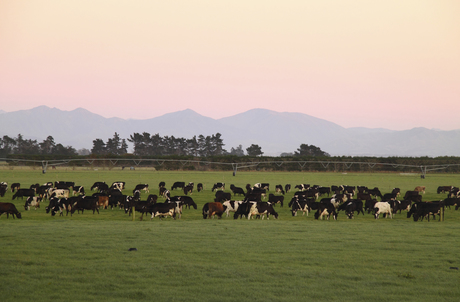Good news for the Australian livestock industry

The development of antibiotic resistance in humans may be somewhat overemphasised with respect to the risk posed by Australian meat and other livestock products, according to a recent survey.
All around the world there is increasing concern that the use of antibiotics, especially third-generation ones, in the livestock and pet industries is contributing to the development of ‘superbugs’ — disease-causing bacteria that are resistant to antibiotics and could potentially spread incurable diseases to humans.
The only problem with this conjecture was that there were no studies investigating the prevalence of antimicrobial resistance in Australian livestock and pets. We simply did not know our level of risk.
Now, however, the results of the first nationwide survey of antibiotic resistance in disease-causing bacteria in Australian livestock and pets have been released — and the news is good.
Rates of resistance to critically important drugs were found to be low and to compare very favourably with other countries around the world. This means the development of antibiotic resistance in humans may be somewhat overemphasised with respect to the risk posed by Australian meat and other livestock products. On a commercial level, consumers can be assured that buying Australian is safer.
The survey findings were released at the official launch of the University of Adelaide-located Australian Centre for Antimicrobial Resistance Ecology (ACARE). The new centre will monitor drug-resistant bugs in both humans and animals across Australia, and research the development of resistance and new ways of controlling disease.
Murdoch University researcher Dr Sam Abraham, who was a collaborator in the study, said, “These findings strongly suggest that Australia’s companion-animal and livestock veterinarians are largely following good antimicrobial stewardship principles when prescribing antibiotics to cure infections in animals.”
The project leader of the Australia-wide survey, Professor Darren Trott, said the survey result is an A-grade report for Australian agricultural industries and animal health practitioners.
“We are starting from a good base, but we need to ensure these rates are kept low by promoting One Health-focused initiatives on antibiotic stewardship, infection control and biosecurity, and viable alternatives to antibiotics. Surveillance is the yardstick whereby all these excellent initiatives can be collectively measured,” said Professor Trott.
“It shows that concerns over animal antimicrobials contributing to the development of antibiotic resistance in humans may be somewhat overemphasised with respect to the risk posed by Australian meat and other livestock products.
“However, there is no way we should be resting on our laurels. We did find some resistance and we know this is a developing global problem.
“We now have an Australian benchmark showing where we are currently with respect to disease-causing bacteria in animals, and we need to ensure ongoing surveillance and continued vigilance, with good prescribing practice across livestock and pets by our veterinarians — just as we need in human medicine.”
Main findings from the report, which was initiated and funded by animal health company Zoetis, include:
- extremely low rates of resistance to third-generation cephalosporins (<3%) and fluoroquinolones (<1%) in E. coli isolated from livestock;
- the absence of resistance to carbapenems (the antibiotic of last resort in humans) in both companion animal and livestock E. coli;
- uniformly low rates of resistance (<10%) to some critically important antimicrobials (third-generation cephalosporins and fluoroquinolones) in E. coli isolated from companion animals (equivalent to the rates observed in humans in Australia).
John Tunbridge, adjunct professor at the University of Adelaide and senior medical advisor to the Australian Commission on Safety and Quality in Health Care, said the findings will be the first of the animal component of One Health national antimicrobial resistance surveillance.
“The first report of the human component, AURA 2016, was recently released by the commission. This landmark report has identified some significant issues in the use of antimicrobials and antimicrobial resistance in human health, and identifies areas for improvement,” Tunbridge said.
Professor Trott, who will be the inaugural director of ACARE, said the centre will fill an essential gap, attempting to keep ahead of this looming health issue.
“It will, for the first time, bring together surveillance of both human and animal antimicrobial resistance across Australia, as well as research into the development of resistance and new ways of controlling disease in both humans and animals.”
The new centre will be a national reference laboratory focusing on the antimicrobial resistance in Gram-negative bacteria, a group which includes many of the serious human-disease causing bacteria (eg, E. coli). It will establish a national collection of bacterial samples as a key research tool for local, national and international research groups.
ACARE will bring together leading bacterial disease experts and animal health experts from the University of Adelaide and forge collaborations with Murdoch University, which undertakes surveillance in Gram-positive bacteria such as Staphylococcus aureus.
The centre will also work with other key national and international antimicrobial research groups, as well as work closely with state and federal government departments responsible for human and animal health.
DNA base editing could enable better probiotic strains
Thanks to DNA base editing technology, researchers have created a strain of...
Tree sap: a plant-based gelatine alternative?
Researchers from the University of Ottawa may have found a new plant-based alternative to...
Making plant-based food tastier and more nutritious
Lactic acid bacteria can help improve flavour and nutritional quality of plant-based dairy...











